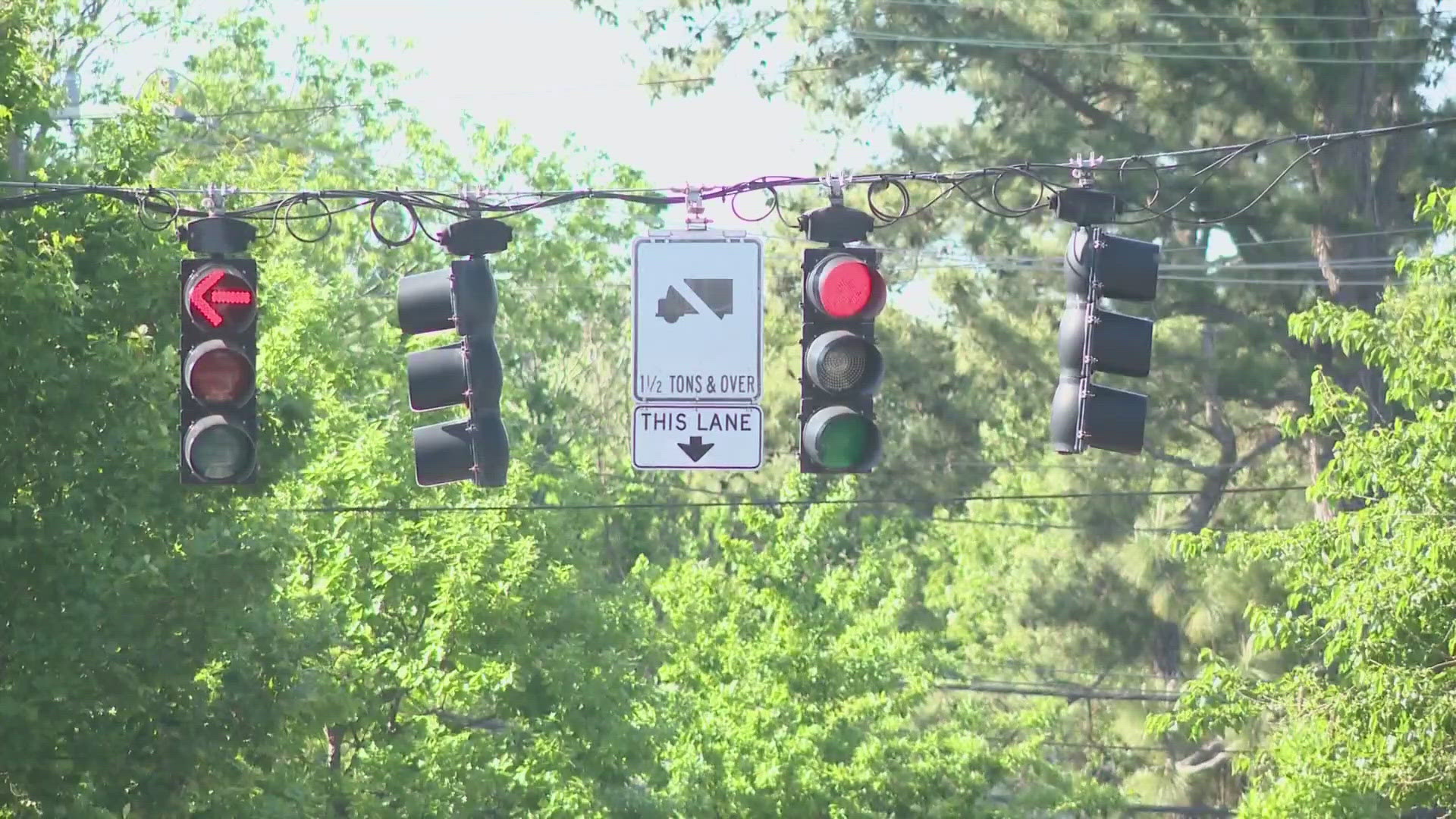VIRGINIA, USA — A new state report shows law enforcement pulled over Black and Hispanic drivers in Virginia at disproportionate rates when compared to other drivers in 2023.
The Virginia Department of Criminal Justice Services released the preliminary report in July for the fourth time under the Commonwealth’s Community Policing Act.
The data examines more than 949,000 reported traffic stops in Virginia between Jan. 1 and Dec. 31, 2023.
And according to the findings, there were disparities in Virginia traffic stops regarding race and ethnicity. Nearly 30% of drivers stopped were Black, despite the group making up roughly 19% of driving-age Virginians. The numbers closely resemble reporting from the previous year's report.
Hispanic drivers made up only 9.2% of Virginia’s driving-age population, but they made up 10.2% of state resident drivers stopped, according to the report. The report also found Black and Hispanic drivers were searched and arrested at higher rates than white drivers.
The rates are based on the number of state drivers stopped relative to their numbers in Virginia’s driving-age population.
“What we’ve seen since 2020 with this community policing act data is that the racial disparities among traffic stops unfortunately have not changed much," said Rob Poggenklass, executive director for Justice Forward Virginia, "but the disparities among searches have declined.”
Justice Forward Virginia is a non-partisan group that advocates for criminal justice reform. In 2020, they lobbied for the eventual state law to fix racial disparities in traffic stops and searches.
Poggenklass said the Community Policing Act is needed for the Commonwealth, and he suggested more research should be done on reasons drivers are stopped.
As part of the law, Poggenklass cited new limitations on the ability of police officers to stop drivers for minor traffic stops, including for some equipment issues, and searches.
“We can never settle for where are today,” said John W. Jones, Executive Director of the Virginia Sheriffs’ Association. “We always have to try to improve.”
Jones said a deeper dive into the findings might be helpful, but he does not think the DCJS report proves bias by law enforcement.
“If you look at the back of a car, the side of a car, you can’t tell who it is,” he said. “So, I don’t think you can draw any conclusions. And maybe a study or a deeper dive, but not from this DCJS data. It’s just data.”
Jones told 13News Now the use of body-worn cameras and dash cameras also increases accountability.
However, retired Petersburg Police Chief Kenny Miller said the data shows there is an issue that needs to be addressed.
“Is this a problem? Yes,” he said. “If people of color are being stopped and they are being stopped disproportionately, then that’s a problem.”
Miller has spent 40 years in law enforcement, including as a former officer with the Virginia Beach Police Department.
According to the Virginia Department of Criminal Justice, although the report shows disparities, it does not measure or prove specific reasons for them.
“Most importantly for this study, this analysis does NOT allow us to determine the extent to which these disparities may or may not be due to bias-based profiling or to other factors that can vary depending on race or ethnicity,” the report reads. “Many data elements play influential roles in racial and ethnic patterns of traffic enforcement but are unavailable to DCJS.

